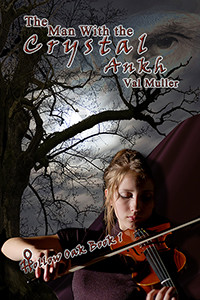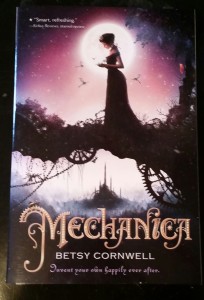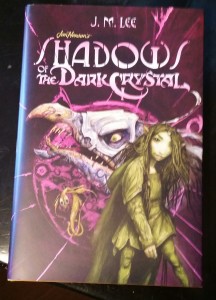Welcome to the Spot Writers. We’ve all been waiting for 2017 to start and now it has! Waiting is rarely the most fun topic to cover, but for this prompt, we have to write a scene/story that’s whole premise is around waiting in a line. And try to make it as interesting as possible.
This week’s post comes from CaraMarie Christy, the young-un of Spot Writers. Visit her blog on Word Press at Calamariwriting and check out her book from when she was twelve, Fairies Fly. Bonus points if you ask her about her book photography.
A Wait with Gabriel
By CaraMarie Christy
This didn’t look like the bank. It had to be the bank, because she had parked her 2001 Civic outside of a bank, but as Melanie Court had walked through the familiar squeaky double doors, something felt different. The fluid in her stomach swirled and her head ached till she was sure that she was fainting, dropping like a rock toward the ground. When her vision cleared and her headache eased, there was something different about the room she was looking in at. Her TD Bank, in Melderstown, MA, a town where bank tycoons knew they didn’t have to spend much money facilities, was a gray place, with moth-eaten chair and rusty chandeliers. This bank felt so much bigger, but no… It couldn’t be a new one. Someone would have gossiped her ear off about the jobs brought in by the construction. It was just somehow… incredibly renovated since her last visit. Now her bank was decadent, covered in gold trimming and mahogany booths.
And the line.
She was about to head back to her car, when she saw the number of people leaning against the tills and plucking at the red velvet ropes meant to section off one line from the next. They were packed in, almost side by side, but no one seemed to be looking at one another. They all just stared at their hands, some with theirs clasped in front of them, almost as if in prayer, and Melanie felt awkward being the only one staring, so she looked down at her own, chipped pink paint nails.
They were such a wreck, that she dared to look up at the lines again. A young man, in a pressed suit with deep amber skin and a winning smile, was making his way up and down every line, with a small tray. It seemed awfully too small, Melanie thought, for the number of coffees he was managing to give away. Almost no one refused him, and he gave the young boy that did a different cup, with darker liquid, and a big smile. After a few rounds, he stopped at Melanie.
“Coffee?” His smile might have been the most beautiful she had ever seen. “Bit of a wait to get through without coffee.” Her tongue went numb and she couldn’t form words, so she blushed, and tucked away a gray strand of hair. “I could get you some cocoa if that is more your taste? Or wine. Definitely no shortage of wine around here.”
Wine at a bank? Just before she was supposed to drive home? As uneasy as she felt by the offer, Melanie’s chest felt warm and comfortable in line. She was in no rush and had already moved up three people. It would be waste to leave now.
She held out an apologetic hand for the coffee he had offered. “I guess I haven’t been to TD in a while. Didn’t know it got this busy.”
“TD…? Aw! TD Bank?” The man closed his eyes. She could see them roaming gently beneath his lids, like he was searching for something. Then he opened them with a smile even more dazzling than his last. “They really should have fixed the bricks holding up their sign. It was a real shame. Not many people don’t see it hitting them like that. Maybe a shame and a blessing though. A blame? No, that’s already a word… how about… a shessing? Whatever it is, I’m glad you’re not nervous.”
It didn’t matter that he spoke strangely, Melanie decided, or used “they” instead of “we.” This man was dazzling. Whoever made the dimples in his cheeks was a genius. She had made great progress in the line while he was occupying her. She wanted to wrap her arm around his and hold on to him for a while, she would probably never get a chance to speak to such a handsome young man again. Not at her age. They would reassign him to a different bank soon, for sure, somewhere more crowded. Melderstown was never really like this. Today had to be some mistake.
“When did your sign break? Are they going to make you fix it?” No, they would give that job to someone else. Tom down the street or someone from Larry’s construction. This man, in his white shirt and flawless dark skin, was too clean-cut to be outside. He was a jewel and needed to be locked up in a treasure trove. Melanie blushed again.
He half-smiled at her. “I’d guess it broke half a second before you stepped through our doors. And me? No, I’ll stay here. My name is Gabriel, I just like helping around this place. Especially the dog room.”
More people had filed in through the doors. Gabriel flashed her one last smile before he gestured with his free hand for her to look forward. They had slowly walked so far, and talked so long, that she had made it to the front of her line, stepping up to the woman at the till without thinking about it. The young woman was almost as beautiful as Gabriel. She looked Melanie up and down with a stern, icy gaze.
“Go up the staircase to the left behind me and pass through the gates at the top.” The woman opened the door to her booth and Melanie was sure she shouldn’t be allowed in such a high security area. This was where all the money was kept! And other people were stepping back too. The woman pressed her, “You can head up now, Mrs. Court.”
Mrs. Court did what she was told. When she was halfway up the stairs, she stole a look back at the bank, and could have sworn that the man in the suit, carrying the silver tray, had bright, feathery wings on his back.
The Spot Writers—Our Members:
Val Muller: https://valmuller.com/blog/
Catherine A. MacKenzie: https://writingwicket.wordpress.com/wicker-chitter/
Dorothy Colinco. www.dorothycolinco.com
CaraMarie Christy: https://calamariwriting.wordpress.com/









